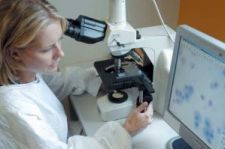
Anatomy Bequests

According to the Royal College of Surgeons, a shortage of bodies donated to medical science is threatening the teaching of anatomy, which it believes is vital for tomorrow's doctors and surgeons.
The college is predicting a cadaver (dead body) shortage of nearly 30 per cent this year and estimates that UK medical schools need at least 1,000 bodies each year.
It is believed that the fall in donations is due in part to the Human Tissue Act 2004, which has stopped the executor of an estate saying that it was the known wish of the deceased to donate their body. People must now leave specific consent with their signature witnessed.
A body can be kept for up to three years and the regulation of donated bodies is rigorous, with a strict code of conduct in the dissection room, which includes only exposing the specific body part being examined.
There is even an annual thanksgiving service held at Southwark Cathedral, attended by about 800 people, including family and friends of donors as well as medical students. At the end of the period, the body will usually be cremated or buried at a special memorial service.
How to Donate Your Body
- Fill out a consent form which can be obtained from your local medical school.
Your signature should be witnessed and the document kept with your will and a copy lodged with the medical school.
- Two donation options are available - 'non-retention' and 'retention'.
Non-retention means that the medical school cannot keep any of your body parts and after three years, the body is cremated or returned to the family for burial.
Retention means that the medical school can retain parts of your body for future use.
- You can donate your body at any age over 17.
It makes no difference what age you are, although they are normally refused if there has been a post-mortem examination or any major organs (other than the cornea) have been removed.
Donations are now regulated by the Human Tissue Authority, which was set up to regulate the removal, storage, use and disposal of human bodies, organs and tissue for a number of Scheduled Purposes - such as research, transplantation, and education and training - set out in the Human Tissue Act 2004 (HT Act).
Please visit http://www.hta.gov.uk to find further information and details of your local medical school or ring 020 7211 3400 or email enquiries@hta.gov.uk
For further details, please contact Louise Evans, Donations Co-ordinator at:
London Anatomy Office
Division of Basic Medical Sciences
St George's University of London
Cranmer Terrace
London SW17 0RE
Tel: 020-8725 5196
E-mail: levans@sgul.ac.uk
Miss Kirsty Thomson (Tel. 020-7848 6599) and Dr Alistair Hunter (Tel. 020-7848 6073) will gladly give advice to people wishing to donate their remains to medical education.
Full information about Anatomy Bequests can be found on: http://www.kcl.ac.uk